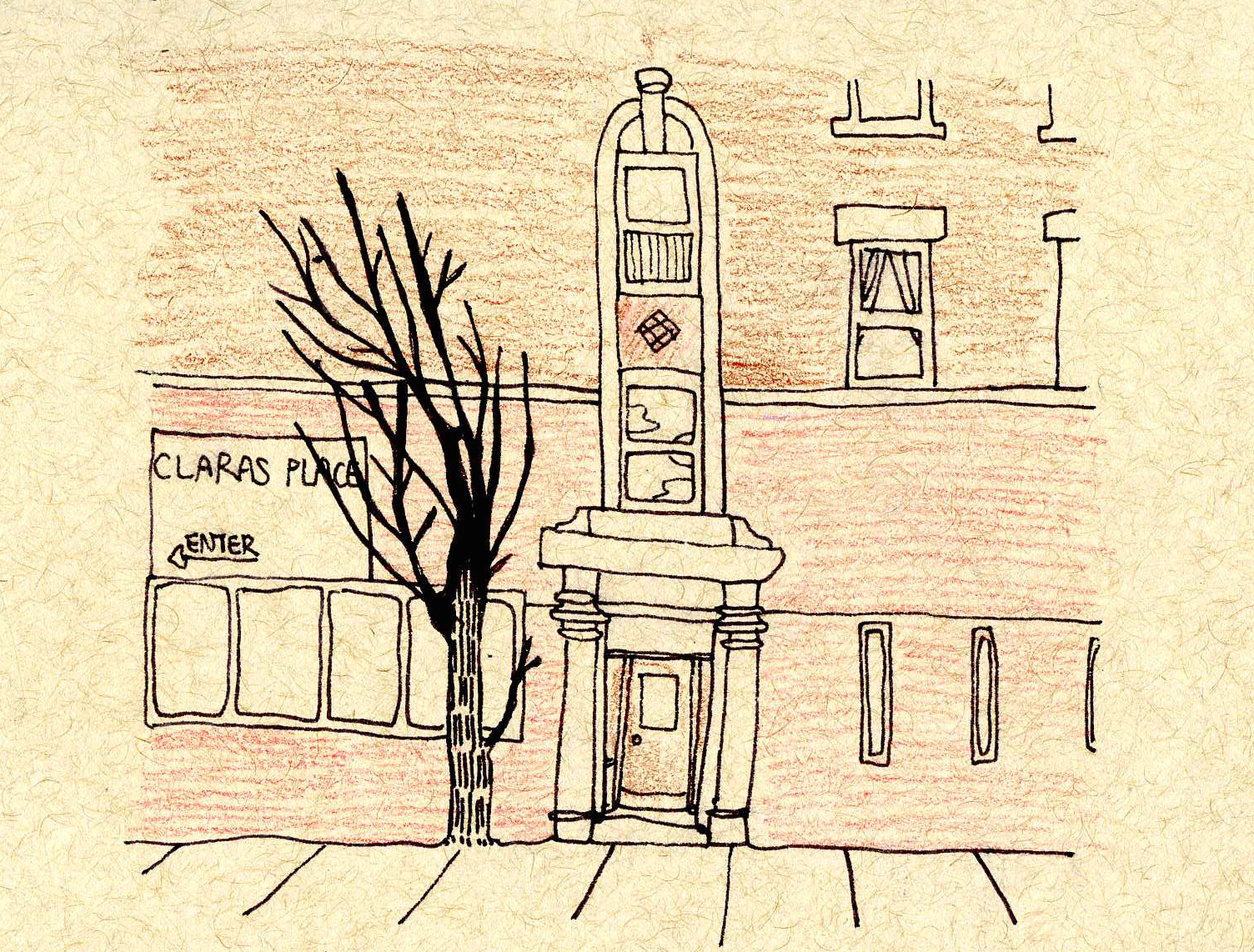A couple blocks west of the 63rd and Ashland Green Line stop in West Englewood sits Clara’s House, a shelter for homeless women and their children. The shelter is announced by a bubblegum pink exterior in an otherwise muted streetscape, and the inside is littered with children’s toys, boxes, and hand-written signs: “PLEASE WASH YOUR DISHES” and “CLOSE DOOR ALL THE WAY.”
The shelter was founded by Clara Kirk in 1987; Kirk, born in Mississippi and raised on the Northwest Side of Chicago, moved to Englewood in 1974, working as a school bus driver. Along with the entire shelter’s staff, she works as a full-time volunteer. The House can host a maximum of fifty-nine people, but Kirk says that the third floor of the building remains unused, as funds aren’t available to feed the twenty-two people who could live there. Before its life as the shelter’s offices, the first floor of the building was a dry cleaner’s.
Clara’s House, along with Clara’s Academic Center and a more permanent shelter, Clara’s Place, is run by the West Englewood United Organization, a charity Kirk founded and helms. In the past, the House has served as a transition into the Place—gas, light, and heating are provided for residents of the former, but families must be able to cover the light and gas bills to live in the latter. Kirk also maintains certain disciplinary standards, like prohibiting drinking and smoking and enforcing a 9pm curfew. “The women here are learning to live,” says Kirk. “It’s not just a flophouse.”
Despite Kirk’s noble goals, finances have always been rocky for both Clara’s House and Place: in the past, the shelters’ heating and lighting was shut off because of substantial fines Kirk owed the city, effectively eliminating the possibility of future financial support from the city government. Since then, the organization has relied on donations and fundraisers from community members. But even with the shelter’s financial instability, Kirk, who was given the title of “Mother of Englewood” by 17th Ward Alderman Latasha Thomas, has no plans to abandon her post in the community. “All of us do not come from the same place, all of us didn’t get the same kind of teaching,” Kirk says. “But all of us are here together, and we must learn how to live together and help one another to live.”

